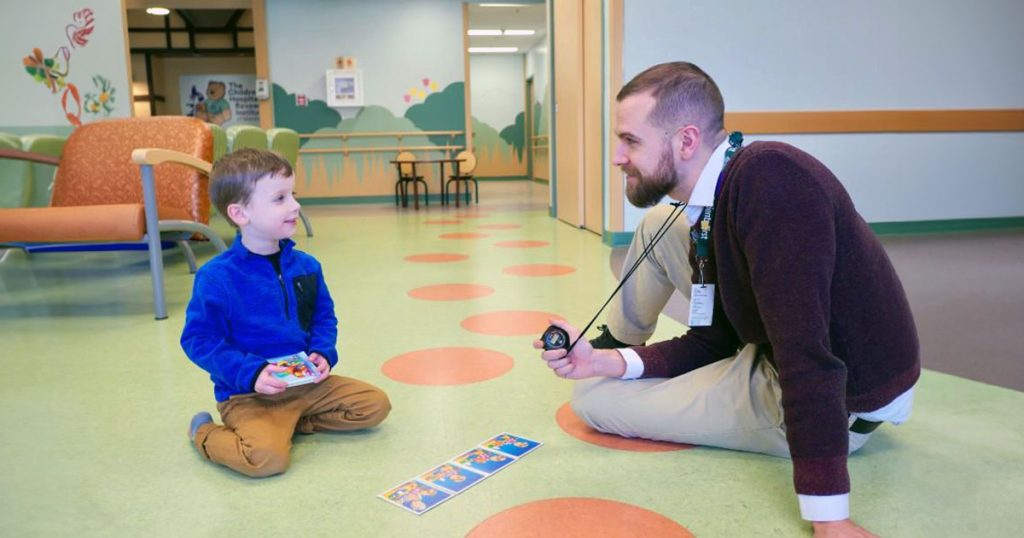Title: Master of Education (Special Education)
Provider: University of Wollongong
Campus location(s): UOW Online, Wollongong, NSW
About
The Master of Education (Special Education) is for primary and secondary educators as well as non-teaching professionals interested in gaining insights into this field. Build skills to perform in special ed roles within schools. You'll learn to meet the diverse needs of students with special requirements.
Participants can choose from electives such as Educational Leadership or Information Communication Technology in Education and Training (ICT). Flexible delivery options, including online studies, enable learners to balance their education with other commitments.
Provider
The University of Wollongong has practical and flexible educational programs which aim to produce highly employable graduates. The School of Education maintains strong connections with community organisations and government bodies to enhance learning outcomes.
Key Takeaways
- The 12-subject program provides specialised training for primary and secondary educators in special education.
- Flexible study options including fully online courses.
- Elective choices allow for customisation and specialisation within the field.
- Includes a 20-day professional experience placement in special education settings.
- Fee-subsidised places available for eligible students.
Course Structure
The Master of Education (Special Education) requires the completion of 12 subjects. First, you must complete four core subjects that lay the foundation for your studies. Second, choose four subjects focused on special education. Finally, you have the flexibility to select four additional subjects from any area of the Master of Education program
The specialisation in Special Education comprises subjects focussed on autism, learning difficulties, and behavioural management. Participating educators gain skills to create inclusive learning environments. Elective subjects can be chosen from a broader range of educational specialisations.
The UOW program develops specialised skills for supporting students with autism and neurodivergent conditions, containing the subjects:
- Autism and Learning
- Learning Environments for Autistic and Neurodivergent Individuals
- Learning Curriculum for Autistic and Neurodivergent Individuals
- Learning Futures for Autistic and Neurodivergent Individuals
- Evidence-Informed Practice, Autism and Neurodivergent Conditions
- Leading Collaborative Communities for Lifelong Learning
- Professional Experience – Developmental Educators
- Using the ESDM Approach to Become a Play Partner for Young Children
- Early Start Denver Model: Certification.
Why This Degree Is Worthwhile
The Master of Education (Special Education) at UOW is for educators looking to enhance their qualifications in supporting neurodivergent learners, including those with intellectual impairments and learning difficulties. It's a valuable investment to advance in the field of special education.
The degree offers a mix of practical experience and theoretical study. You'll learn to implement evidence-based programs and interventions. These capabilities ensure graduates are well-prepared to support inclusive education and achieve positive outcomes.
Related: 10 Best Masters in Education Online in Australia
Also Consider Inclusive Education Degrees
Degrees using the term "Special Education" are gradually being replaced by "Inclusive Education" degrees in Australia. This shift aims to integrate students with disabilities into mainstream classrooms. However, this approach has its challenges.
Pros of inclusive education degrees
- Wider impact. Educators can address diverse classroom needs, promoting a unified learning environment.
- Adaptability. These qualifications prepare teachers to adjust curricula for various settings.
- Policy alignment: Adhering to national and international educational standards is easier with this focus.
Cons of inclusive education degrees
- Specialised needs. There might be less focus on specific disabilities, which can leave some educators unprepared.
- Resource demands. Effective inclusion requires significant resources, which not all schools can provide.
- Generic approaches. There is a risk of generic methods that fail to meet all student needs, especially those with severe disabilities.
Inclusive Education degrees represent a modern, inclusive approach but may not delve as deeply into specialised needs as traditional Special Education programs. Consider your career goals and the needs of students when choosing.



